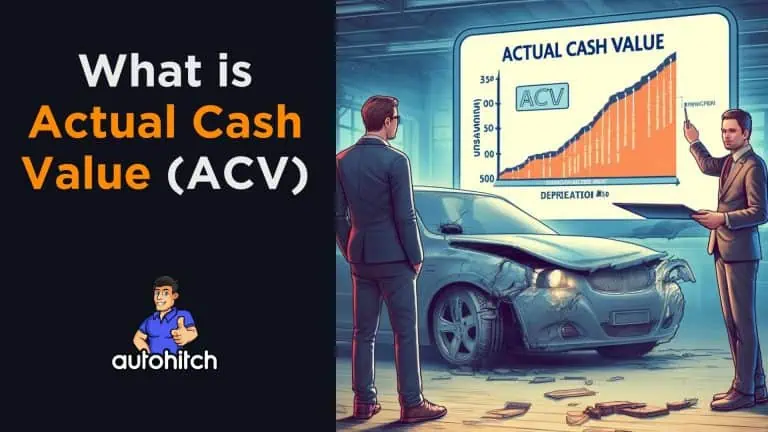Actual cash value (ACV) is the amount your car insurance company will pay you if your vehicle is totaled in an accident or stolen. It represents the depreciated value of your car, which is calculated by subtracting depreciation from the car’s original value or replacement cost.
To better understand ACV, here’s an example:
Imagine you bought a brand new car for $30,000 three years ago. Unfortunately, you were recently involved in a serious accident, and your insurance company has declared your vehicle a total loss.
Due to depreciation, the actual cash value of your car is now determined to be $20,000. This means your insurer will pay you $20,000 (minus your deductible) to compensate for the loss of your vehicle.
Table of Contents
Factors That Affect Actual Cash Value
Several factors influence the actual cash value of a car, including:
- Age: As a car gets older, its value decreases due to normal wear and tear.
- Mileage: High mileage vehicles typically have a lower ACV because they have more wear and tear.
- Make and model: Some car brands and models hold their value better than others.
- Condition: The overall condition of your car, including both interior and exterior, impacts its ACV.
- Market demand: The current market demand for your specific make and model can influence its value.
ACV vs. Replacement Cost
It’s important to note that actual cash value is different from replacement cost.
Replacement cost is the amount it would take to replace your totaled vehicle with a similar make and model without considering depreciation. In most cases, your car’s ACV will be less than its replacement cost.
Some insurers offer replacement cost coverage, which means they will pay to replace your car with a similar make and model, regardless of depreciation. However, this type of coverage is typically more expensive than standard ACV coverage.
How Insurance Companies Determine ACV
Insurance companies use various methods to determine the actual cash value of a vehicle. They may use resources like Kelley Blue Book or NADA Guides to assess your car’s value based on its age, condition, mileage, and other factors. Some insurers have their own proprietary valuation systems.
If you disagree with your insurance company’s ACV assessment, you can try to negotiate by providing evidence to support a higher valuation. This might include:
- Receipts for recent upgrades or improvements
- Maintenance records showing your car has been well-cared for
- Comparable sales data for similar vehicles in your area
The Bottom Line
Actual Vash Value is the amount you can expect to receive from your insurer if your vehicle is totaled or stolen. By knowing the factors that affect your car’s ACV, you can make better decisions about your coverage and be better prepared in the event of a total loss.



